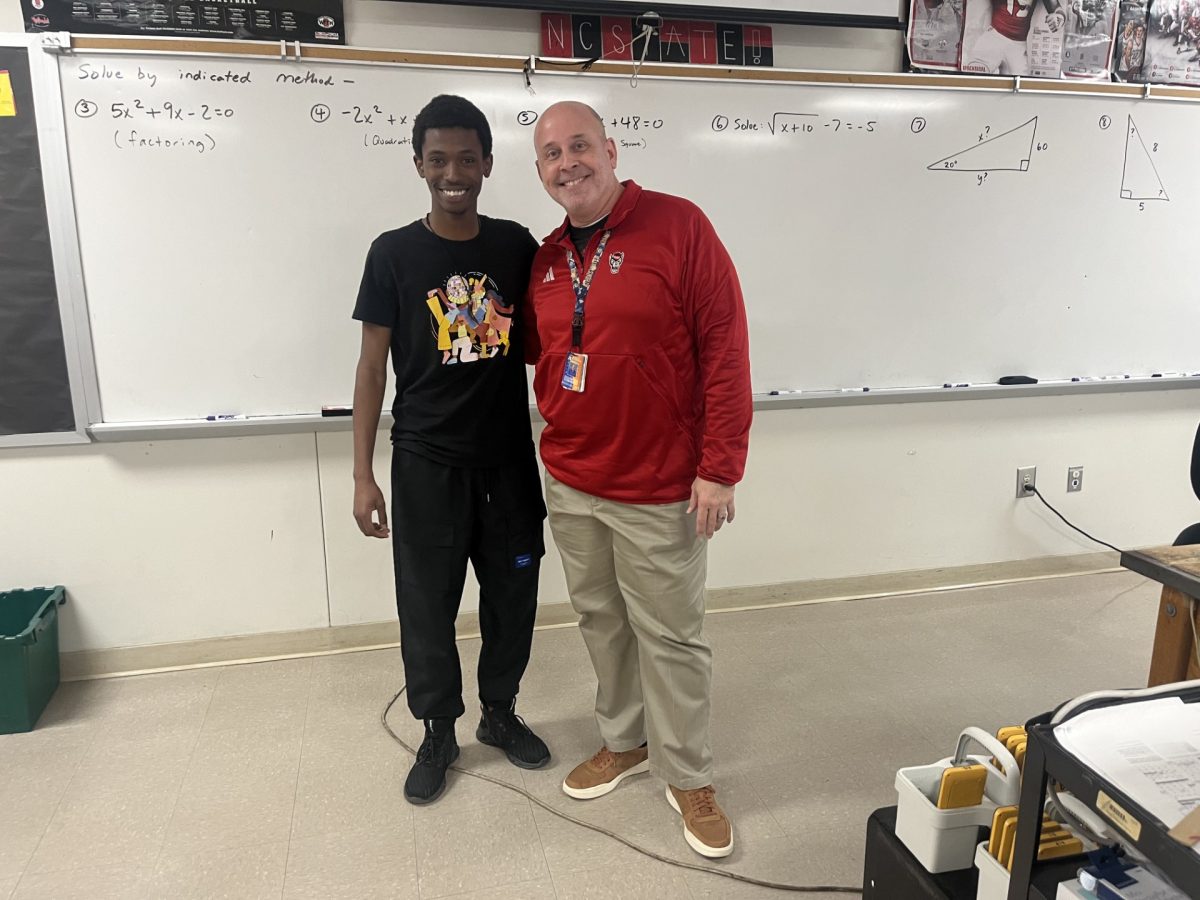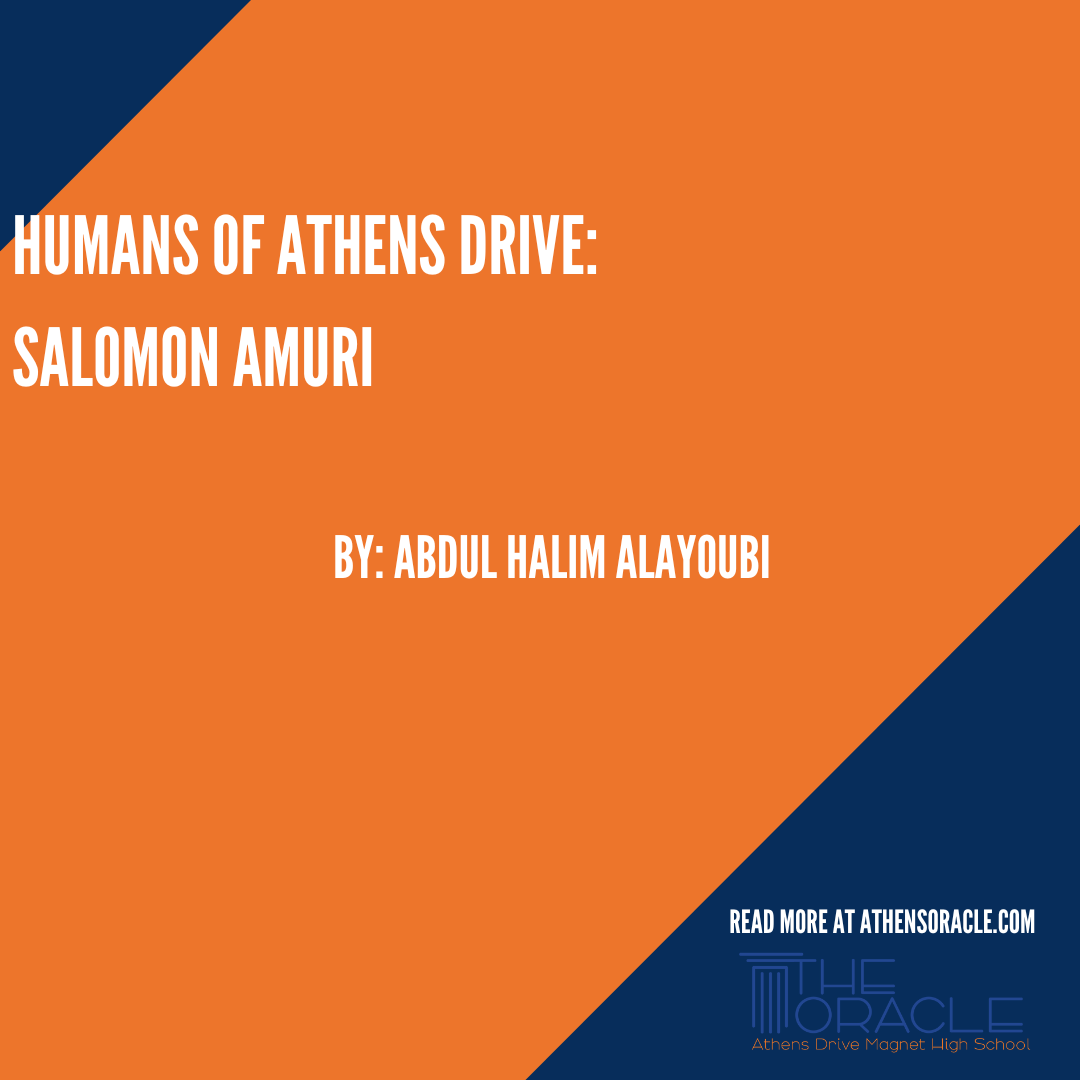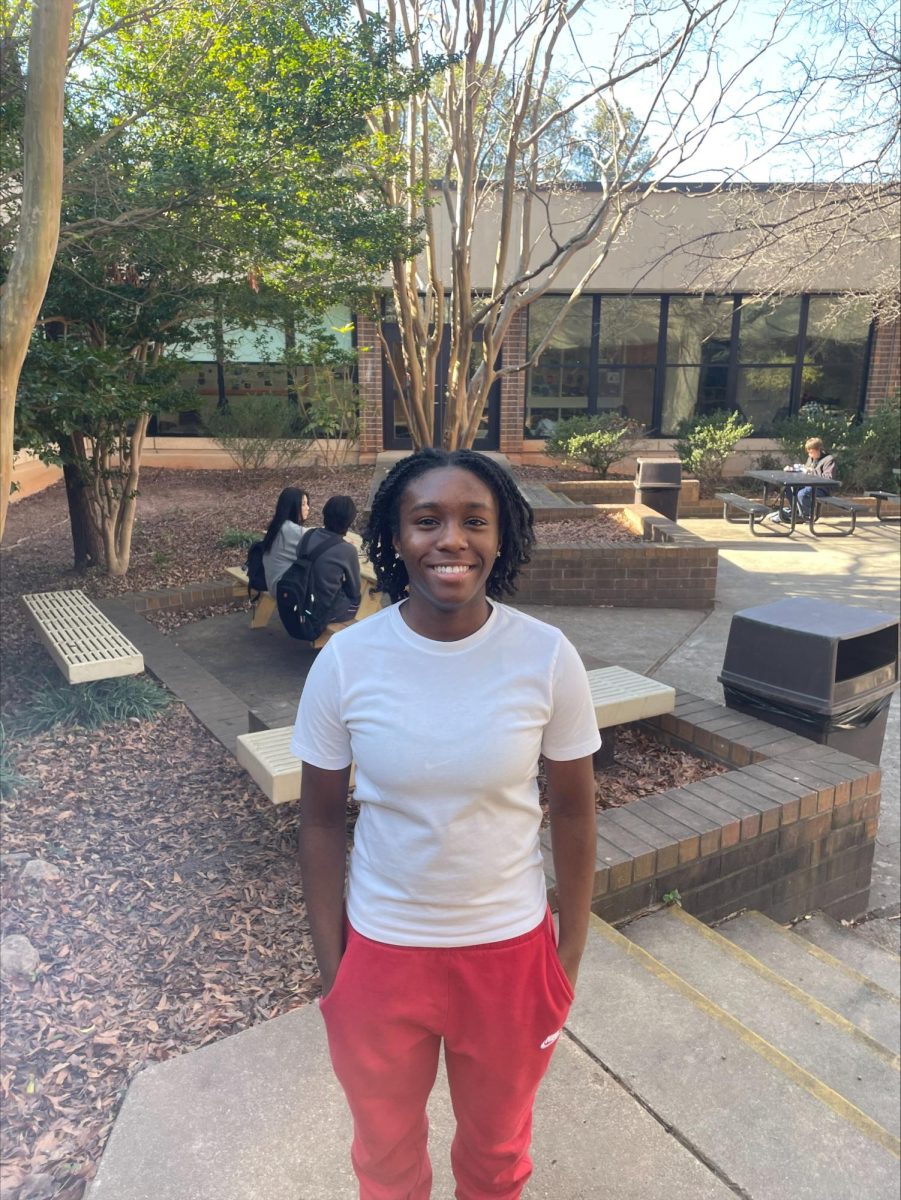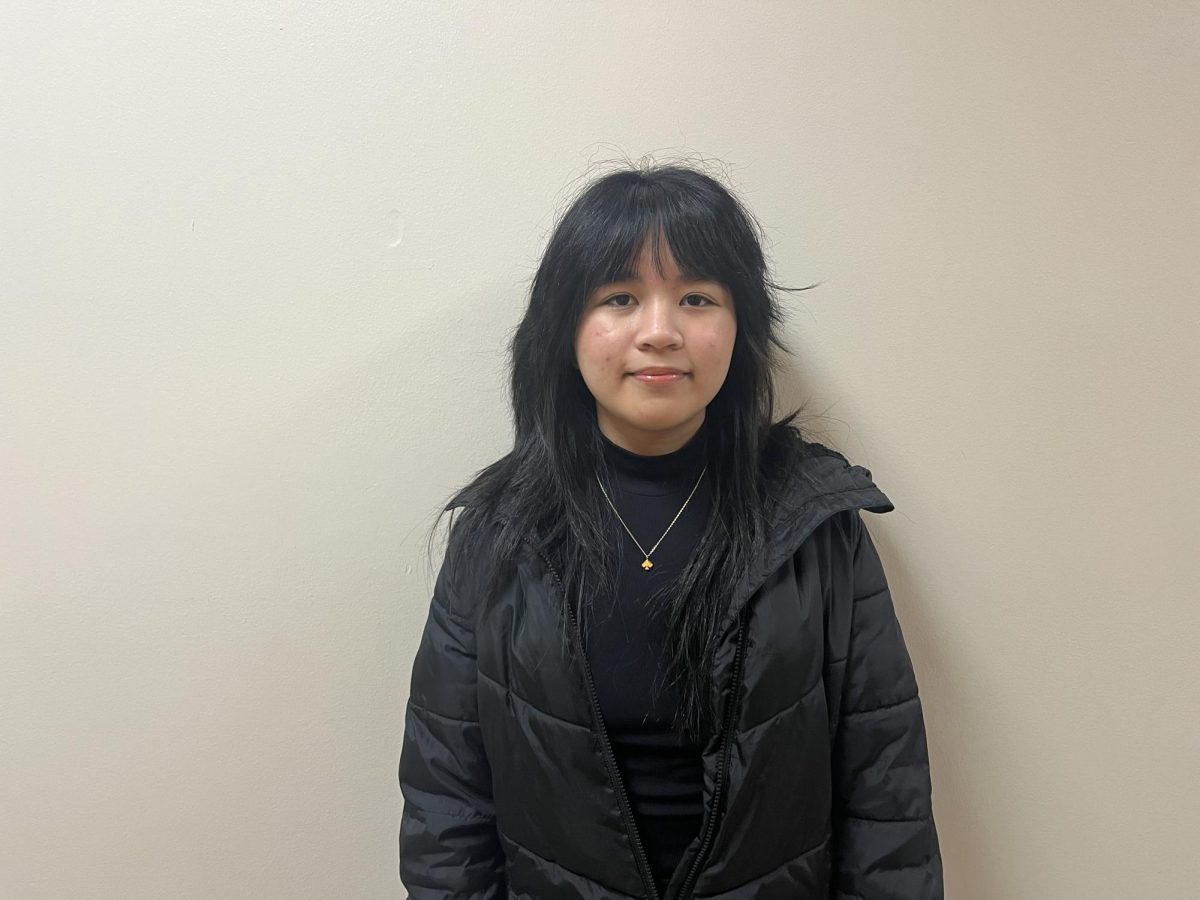Ken Kercy David Ingabire, a standout student, fluent in five languages and lived in so many different places across the globe. He now lives in America in the state of North Carolina and goes to Athens Drive High School. Christopher Remaley, a staff member at Athens Drive, recently nominated Ingabire to take part in the Humans of Athens Drive project. Despite facing challenges at a young age, Ingabire excelled academically and grew mentally in the most positive ways possible. Ingabire is resilient and has great dedication all through the ups and downs, making him a leader who sets a good example for others to emulate.
“I nominated Ken not only because he is a great student, which he is, but I nominated him because he has a touching story that I think everybody would love to hear,” said Remaley.
With diverse experiences outside of the U.S., Remaley was sure Ingabire would have great stories to share. On first impression, Ingabire is a sweet and gentle individual. Ingabire is currently 19 years old, he was born in Burundi, East Africa. In Burundi, they speak Kirundi as their first language and French as their second.
“My mother and I had to move to Uganda because our country had… um, there was war, we then reached the Nakivale settlement camp which is where we stayed,” said Ingabire.
The Nakivale settlement camp is a place for refugees to go after where they are living becomes no longer safe to live.
According to Refugees of Uganda – Wikipedia the Nakivale settlement camp currently hosts 171,387 refugees from the Democratic Republic of Congo, Burundi, Somalia, Rwanda, Ethiopia, and Eritrea. Although many refugees in the area have been living there for several years, recent conflicts in nearby countries are increasing the number of arrivals per day.
Ingabire expresses how the environment there was for him, he says there were dangerous snakes everywhere, all inside the bushes. He goes on to tell how hard living there was for him and his mother. He describes the house they lived in to be made of mud and handmade bricks; he then cringes to explain there was cow dung spread across the house’s walls as well.
“It was terrible but, we did what we had to do which was, stayed firm and um… lived, we knew it would be the right thing to do because uh…of our lives and stuff,” said Ingabire.
While he was staying in the house, he explained how there were so many sticks in the house that he would have tons of splinters all over his body, his feet, and under his nails specifically. He had to use needles to pluck out all of the wood.
“It was a real adventure for me; we actually had two houses, the one we were renting in Africa, and the other was being built in America. My father was in America helping build the home for us, while we hadn’t moved to America yet,” said Ingabire.
Not only was Ingabire living in one and building another, but they were searching for a new home in Africa to live in because their current house became too chaotic. Ingabire went more into depth about school life when he was going to school in Uganda. “My mom put me in a school called Bara Junior, in Uganda because I had to adjust so once I went to America with my father it would not be so hard.
In Uganda they have many ethnic groups, and they all have their own traditions, beliefs, religions, and overall way to act and teach. Teachers were very strict on the students, but not like what you would imagine in America.
“If I was in Uganda and a teacher, like Mr. Remaley, told us we have a paper due and it wasn’t right and on time for the due date, we would have to go up in front of the whole class and the teacher would beat your butt, with a stick over and over. The other kids laughed so hard. This story was not an example; it happened to me,” said Ingabire.
Once Ingabire reached America he struggled a little bit on the basic struggles of moving to a whole new country.
“When I went to boarding school the first day I cried because I didn’t even know ‘hi’ in English. I only knew two languages, then I found one of the students speaking a country language that has the same pronunciation as my country. We then became best friends. He had a huge impact on my young life, he even taught me a few languages I didn’t know yet.” said Ingabire.
As society,America has water in the house. In Africa they had jerry cans, and they contained 20 milliliters.
“We carried the jerry cans on our bikes but not like a small bike like they were really huge. I would have to go up the mountains with them and get water. Ah, it was tiring, my back hurt so bad and it felt like my back was broken,” said Ingabire.
Ingabire loaded five jerry cans onto his bicycle, skillfully securing them for the journey. Employing rubber ropes, he fastened one on the right, another on the left, and an additional two on the backseat. To ensure stability, he used sticks and ropes to tightly secure the two remaining jerricans at the back.
Ingabire may have encountered challenges that many people might perceive as negative, yet he transforms them into opportunities for learning and personal growth. He views these experiences as valuable lessons to appreciate and admire.
“It was really amazing, if I was to think of those times back when I was young, I would have thought…Aghh! It was so bad, but now I see it as an amazing experience and a memory to remember,” said Ingabire.









